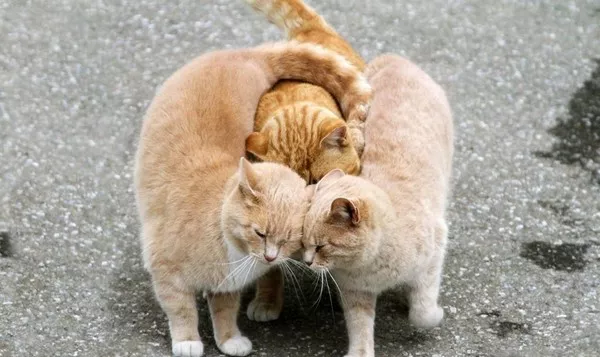The Cornish Rex, with its distinctive curly coat and elegant physique, is a beloved cat breed cherished for its playful nature and affectionate demeanor. As a responsible cat owner, it’s essential to have a comprehensive understanding of the typical weight range and growth trajectory for Cornish Rex cats. Monitoring their growth throughout various life stages enables owners to ensure their feline companions maintain optimal health and well-being.
1. Cornish Rex Size and Growth Chart
Cornish Rex cats exhibit unique characteristics in terms of size and growth compared to other cat breeds. Understanding their growth chart can provide valuable insights into their development process.
Height: Cornish Rex cats typically measure between 8 to 12 inches in height, reflecting their slender and graceful build.
Weight Range:
Newborn: At birth, Cornish Rex kittens weigh between 1.8 to 5.3 ounces, varying based on litter size and individual genetics.
2 Weeks: By the age of two weeks, their weight increases to approximately 5.3 to 8.8 ounces as they begin to nurse and gain strength.
3 Weeks: At three weeks old, Cornish Rex kittens typically weigh between 12.3 to 15.9 ounces, demonstrating steady growth.
4 to 8 Weeks: From four to eight weeks of age, their weight ranges from 1.4 to 2 pounds, marking a significant period of growth and development.
9 to 12 Weeks: Between nine to twelve weeks, Cornish Rex kittens reach a weight of 3 to 3.5 pounds, indicating continued progress.
12-16 Weeks: By the age of twelve to sixteen weeks, their weight typically ranges from 4 to 4.5 pounds, showing substantial growth.
16-20 Weeks: From sixteen to twenty weeks, Cornish Rex cats usually weigh between 5 to 5.5 pounds, nearing their adult size.
6 Months: At six months old, their weight ranges from 6 to 6.5 pounds, with some variations among individuals.
12 Months: By twelve months of age, Cornish Rex cats generally weigh between 6 to 10 pounds, reaching their adult weight range.
18 Months: Between eighteen months, their weight may stabilize between 5 to 10 pounds, reflecting individual differences and genetic factors.
2. When Does a Cornish Rex Stop Growing?
Cornish Rex cats typically cease growing in height between nine to twelve months of age, reaching their full adult height. However, healthy weight gain can continue until they reach eighteen months, as they develop muscle mass and fill out their frame.
3. Factors Affecting Size
Several factors influence the size and growth of Cornish Rex cats, including diet, genetics, and environmental factors.
Diet: Providing a balanced and nutritious diet during kittenhood is crucial for supporting healthy growth and development. High-quality cat food formulated for kittens ensures they receive essential nutrients for optimal health.
Genetics: Each Cornish Rex inherits a unique genetic makeup that influences their ultimate size and physique. While breed standards provide guidelines, individual variations are common, and some cats may naturally be smaller or larger than average.
See Also:What Do Cornish Rex like to Play With?
Environment: Creating a safe and stimulating environment promotes physical activity and mental stimulation, contributing to overall health and well-being. Providing opportunities for play, exercise, and exploration encourages healthy growth and development in Cornish Rex cats.
4. Tips for Healthy Growth
Ensuring the healthy growth of Cornish Rex cats involves providing proper care and attention throughout their life stages. Here are some essential tips:
High-Quality Diet: Feed your Cornish Rex a balanced diet consisting of high-quality cat food formulated for their specific life stage. Choose cat food that provides essential nutrients, including protein, vitamins, and minerals, to support their growth and overall health.
Regular Vet Check-ups: Schedule regular veterinary check-ups to monitor your Cornish Rex’s growth, health, and well-being. Your veterinarian can provide guidance on nutrition, weight management, and any potential health concerns that may arise.
Exercise: Cornish Rex cats are known for their active and playful nature. Provide ample opportunities for exercise, such as interactive toys, climbing structures, and designated play areas. Engaging in regular play sessions with your cat helps to burn off excess energy and promotes physical fitness.
Social Interaction: Cornish Rex cats thrive on companionship and attention from their owners. Spend quality time bonding with your cat through cuddling, grooming, and interactive play. Providing social interaction and mental stimulation strengthens the bond between you and your Cornish Rex while promoting emotional well-being.
Conclusion
Understanding the weight range and growth patterns of Cornish Rex cats is essential for promoting their overall health and well-being. By monitoring their growth, providing proper nutrition, veterinary care, and ample opportunities for exercise and social interaction, owners can ensure that their Cornish Rex companions lead happy, healthy, and fulfilling lives. Remember that each Cornish Rex is unique, and variations in size are normal. With proper care and attention, your Cornish Rex will thrive and bring joy to your household for years to come.
Related Topics:

























